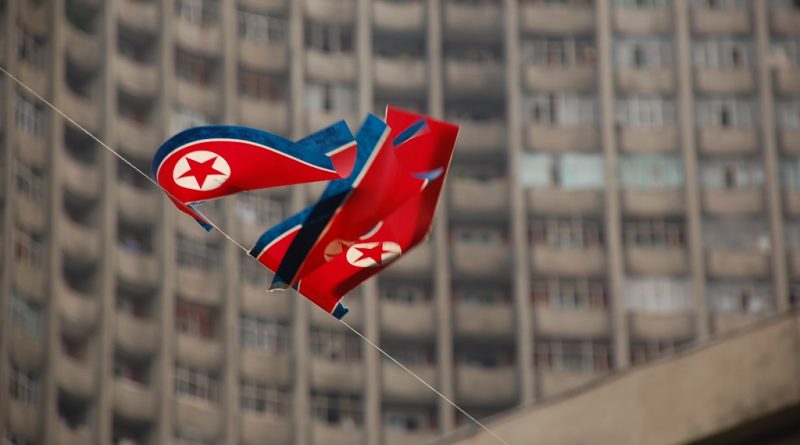The North Korean nuclear program in U.S. foreign policy
On July 3rd, North Korea test-launched an intercontinental ballistic missile which, the rogue nation announced, could target any place in the globe. Although the claim has been debunked, the rocket in question flew higher and farther than any previously launched, having reached Japan’s Exclusive Economic Zone before crashing into the ocean.
According to North Korea’s state-controlled media, this test marked the final stage of the country’s endeavors to develop a missile capable of reaching the United States. It is still unclear whether or not the isolated state has the capabilities for miniaturizing a nuclear warhead that can be carried by such a missile, but experts remain doubtful.
Social Sciences research
Ever since the end of the Korean War in 1953, academic contributions focusing on North Korea have belonged to the field of security and strategic studies. Research only took off between the late 1980’s and early 1990’s, with South Korea’s democratization, and the U.S.-North Korean nuclear crisis of the early 1990’s.
Currently, there is substantial Social Sciences research regarding the North Korean nuclear program in U.S. foreign policy. Publications on the subject that are indexed in the bibliographic database Scopus are typically based in the United States, although a significant portion is originated from South Korea and Australia. In terms of affiliation, Georgetown University in the United States and Yonsei University in South Korea have been particularly prolific. Regarding distribution in academic journals, Pacific Focus and Korean Journal of Defense Analysis are the ones most often tackling the subject. It is also important to reference Selig Harrison’s 2009 book Korean Endgame: a strategy for reunification and U.S. disengagement, an exceedingly cited publication, in which the author defends that the Western country should withdraw its nuclear umbrella while negotiating agreements to denuclearize North Korea, in collaboration with China, Russia and Japan.
The legacy of past U.S. administrations
- Clinton
Suspicions regarding the development of a North Korean nuclear weapons program emerged in 1992, following an inspection carried out by the International Atomic Energy Agency. As noncompliance with verification requirements continued, a round of talks between the U.S. and North Korea led to the adoption of the “Agreed Framework”. In accordance with the agreement, North Korea agreed to freeze its nuclear weapons program while, in return, it received two light-water reactors, among several assurances from the U.S.. Hoping to achieve practical results, the Clinton Administration policy towards North Korea was centered on continuing engagement, regardless of any reservations it had on Pyongyang’s regime, and on working closely with Japan and South Korea. That approach persisted, in spite of the discovery that the country was now trying to develop uranium enrichment capabilities, and the fact that the slow implementation of the agreement led to new threats from North Korea. Therefore, this Administration’s legacy was one of limited progress.
- Bush
The Bush Administration pursued two contradictory policies regarding North Korea. Firstly, there was strong resistance to a commitment to engagement with Pyongyang, dubbed in George W. Bush’s inauguration speech as an ‘axis of evil’. Vice-President Dick Cheney added to that description by claiming that the U.S. refused to negotiate. However, following the restart of North Korea’s nuclear weapons program, the Six Party Talks, a series of multilateral negotiations attended by China, Japan, South Korea, Russia, and the U.S., in addition to the rogue state, were launched in 2003.
Talks would break down by 2005, following the application of new U.S. sanctions, to which Pyongyang retaliated by conducting its first ever nuclear test, leading to new Six Party Talks negotiations. Still, North Korea kept showing little commitment to agreements made in that framework.
- Obama
The Obama Administration followed the opposite course, starting by pursuing continuing engagement with Pyongyang, only to be forced to look for the imposition of U.N. sanctions – a response to new missile and nuclear tests. While Six Party Talks negotiations continued, so did North Korea’s efforts to increase nuclear and missile capabilities. In addition, since 2013, threats regarding the use of its nuclear weapons against the U.S. have multiplied.
The U.S. Administration looked to further pressure the most recent nuclear power by forcing upon it further sanctions and isolation, but North Korea proceeded to violate its international obligations at an unprecedented rate, particularly since 2016.
Conclusions
Throughout three Administrations, several approaches have been taken, all with similar results. According to Revere (2013), it would appear that while criticism can be directed at their efforts, North Korea’s determination to develop nuclear capabilities surpasses any other factors. Therefore, it is difficult to imagine what can the U.S. offer that can persuade Pyongyang to denuclearize.
There is only one case of a nuclear-weapon-state pursing denuclearization: South Africa. However, as explained by Pabian (2015), such an occurrence only took place because nuclear weapons became superfluous, and a liability. Conversely, North Korea looks to obtain acknowledgement of its status as a legitimate nuclear state, with Kim Jong-un possibly linking the survival of his regime to its continuing efforts to increase the country’s nuclear force. In that regard, Muammar Gaddafi and Saddam Hussain, who carried out nuclear sensitive activities, but gave up before building nuclear bombs, ending up deposed, are likely seen as cautionary tales.
There are no easy solutions. Missile defense systems cannot yet fully threat deterrence, and granting North Korea full nuclear-weapon-state status creates a dangerous precedent. China has assumed a disappointing role in the matter, although its ban on North Korean coal imports is likely to have a strong impact on the already fragile economy.
Donald Trump has expressed its eagerness to carry out a ‘very severe’ response, but U.S. Defense Secretary Jim Mattis explained that his country saw diplomacy as the key to solving the issue. Truthfully, a military option is seen by experts as one of exceedingly high-risk. Another option would be the U.S. retreat of the region in exchange to an end to all missile and nuclear tests, but it would happen at the cost of diminishing U.S.-South Korean deterrent.
Lastly, it is important to remember the risk posed by North Korean proliferation activities. Enhanced methods of controlling the flux of technology, nuclear material, people, and money are fundamental to avoid a repetition elsewhere of what is taking place now in the Korean Peninsula. International security depends on it, and reinforced multilateral efforts need to be in place to protect it.
Photo by (stephan) / CC BY-SA 2.0
![]() This work is licensed under a Creative Commons Attribution-NonCommercial-ShareAlike 4.0 International License.
This work is licensed under a Creative Commons Attribution-NonCommercial-ShareAlike 4.0 International License.




